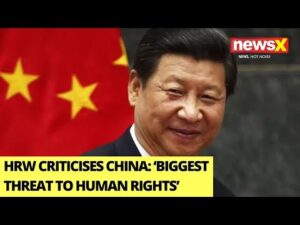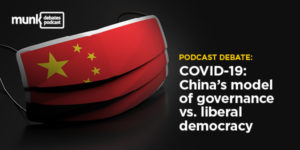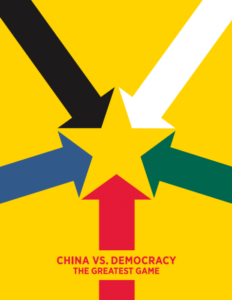China has possibly committed “genocide” in its treatment of Uighurs and other minority Muslims in its western region of Xinjiang, a bipartisan commission of the U.S. Congress said in a report released on Thursday, Reuters reports. The Congressional-Executive Commission on China (CECC) said new evidence had emerged in the past year that “crimes against humanity – and possibly genocide – are occurring.”
The Communist regime is responsible for the darkest period for human rights since the Tiananmen Square massacre, Human Rights Watch said in its annual report. But 2020 was also the year that world governments found “safety in numbers” to push back on China’s policies of repression, with less fear of retaliation, it added, the Guardian reports:
 “The Chinese government’s authoritarianism was on full display in 2020 as it grappled with the deadly coronavirus outbreak first reported in Wuhan,” the report said, describing the initial cover-up of the outbreak by authorities and the punishment of whistleblower doctors including Li Wenliang and journalists such as Zhang Zhan, who reported on the Wuhan lockdown and on surveillance and harassment of virus victims’ families….Worsening persecutions of ethnic minorities in Xinjiang, Inner Mongolia and Tibet, targeting of whistleblowers, the crackdown on Hong Kong and attempts to cover up the coronavirus outbreak were all part of the deteriorating situation under President Xi Jinping.
“The Chinese government’s authoritarianism was on full display in 2020 as it grappled with the deadly coronavirus outbreak first reported in Wuhan,” the report said, describing the initial cover-up of the outbreak by authorities and the punishment of whistleblower doctors including Li Wenliang and journalists such as Zhang Zhan, who reported on the Wuhan lockdown and on surveillance and harassment of virus victims’ families….Worsening persecutions of ethnic minorities in Xinjiang, Inner Mongolia and Tibet, targeting of whistleblowers, the crackdown on Hong Kong and attempts to cover up the coronavirus outbreak were all part of the deteriorating situation under President Xi Jinping.
“This has been the darkest period for human rights in China since the 1989 massacre that ended the Tiananmen Square democracy movement,” the report said.
Opinion turning against China
 The world’s leading democracies should form a coalition and devise a “policy tool-kit” to counter Beijing’s human rights abuses at home and its support for authoritarianism overseas, according to the China Research Group of British lawmakers.
The world’s leading democracies should form a coalition and devise a “policy tool-kit” to counter Beijing’s human rights abuses at home and its support for authoritarianism overseas, according to the China Research Group of British lawmakers.
“What we’re trying to do is to change China. We’re not trying to cut it off,” Tom Tugendhat, chairman of parliament’s Foreign Affairs Select Committee, told VOA (above). “We’re trying to encourage it to change within a rules-based international system, so that the people of China have the opportunity they deserve and so the rest of the world is not threatened.”
Steve Tsang, director of the China Institute at the University of London’s School of Oriental and African Studies, said it is a battle with global implications.
“China under (Chinese leader) Xi Jinping is interested in exporting and supporting authoritarianism in the world. So, there is a bit of a contest of two different ideas: liberal democracies and Chinese-supported authoritarianism,” Tsang told VOA.
The wind is also blowing against China among the public, reports suggest. In October, 74% of British respondents to a Pew Research survey had a negative view of China, compared to 16% in 2002.
Forbiddens & unsuitables
 Western leaders were once excited by China’s new and much-vaunted experiment with rural democracy. It would, they hoped, lead to broader political change, the Economist reports. But the Communist Party is making it clear that the days of dalliance with modest political freedom in villages are over. The biggest effort in decades is under way to make sure the party’s candidates win, unopposed, it adds:
Western leaders were once excited by China’s new and much-vaunted experiment with rural democracy. It would, they hoped, lead to broader political change, the Economist reports. But the Communist Party is making it clear that the days of dalliance with modest political freedom in villages are over. The biggest effort in decades is under way to make sure the party’s candidates win, unopposed, it adds:
The south-western city of Kunming, for example, has a list of ineligible types called the “seven forbiddens and 15 unsuitables”. Among the forbiddens are “politically two-faced” people. A propaganda video explains this with an illustration of a man dreaming of a protest for freedom and democracy. The unsuitables include those with “strong religious feelings”: a cartoon shows people bowing to a Jesus-like figure.
Why bother counting? – The West once dreamed of democracy taking root in rural China https://t.co/jpKM3SySSB
— Democracy Digest (@demdigest) January 14, 2021
*U.S. Representative James P. McGovern (D-MA) and U.S. Senator Marco Rubio (R-FL), Chair and Cochair of the bipartisan and bicameral Congressional-Executive Commission on China (CECC), issued the Commission’s 2020 Annual Report on human rights and the rule of law in China. The full report and an executive summary are available for download on the CECC’s website. A video statement by CECC Chairman McGovern about the 2020 Annual Report is available here.
 “Both Congress and the incoming Biden Administration should use the reporting and recommendations contained in this report to hold the Chinese government accountable and more effectively prioritize the promotion of universal human rights and the rule of law in the U.S.-China relationship,” said CECC Chair McGovern.
“Both Congress and the incoming Biden Administration should use the reporting and recommendations contained in this report to hold the Chinese government accountable and more effectively prioritize the promotion of universal human rights and the rule of law in the U.S.-China relationship,” said CECC Chair McGovern.
Dr. Minxin Pei, who explored the influence of China’s totalitarian institutions, such as the Leninist party-state, control of economic “commanding heights,” and a pervasive surveillance system, in the annual Seymour Martin Lipset Lecture on Democracy in the World, has joined the board of the National Endowment for Democracy (NED).
The CECC report “once again, shows us the terrible human cost of the Party’s unchecked power abuses and why we must find ways to stand with the Chinese people,” said CECC Cochair Rubio.







